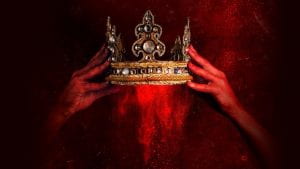It’s Saturday night; you’re eager to see the new movie in theatres. You are one of the first people to see it in your group of friends. The popcorn, the candy, the big screen – it is an experience everyone loves. Another day you are chilling with a friend, watching an old classic movie for who knows how many times. After a hard week, you can finally relax — no big screen, just the comfort of your home and your friend’s company.
No matter how many movies you watch, you can’t deny that they build our culture and bring us together. It transports you to another world and takes you on a journey. Which is precisely what our class did this class this semester.
And what better to do than combine the Tragedy of Macbeth and the Cold War into a short film involving the entire class.
Macbeth and the Cold War? How could these possibly be connected? Observe:
We did not make anything noteworthy in the film — far from it — but we finished. The track record was not favourable for our venture, having the last few films fail before us. But beneficial to us, we went into the project with ignorance of breaking that streak. And since you are seeing this blog post, we were successful. That inability to give up on the possibility made this possible, driving us through the movie-making process.
Our goal; is to collectively craft a compelling vision of “Macbeth” set in the 1950s.
Our adaptation, condensed into a 15-minute film, tackled the prospect of how one will believe something to be true if it adheres to their ambitions. Confirmation bias through the telegram made Macbeth think Duncan was a soviet spy — killing him in the coming days. And despite not following the original play’s theme, it shows his greed to become top authority overcame his belief in consequences.

The story changed three separate times; once with the screenwriting team, next with the directing and finally with the editing. Everyone had envisioned a different take on the film, writing a part of the film scene that the script team would have to edit.
These topics aren’t more different on the surface level, but digging deeper, you can find similarities everywhere. There is tension between everyone thinking they are out for one another and believing everyone is a spy. Learning the theme of Macbeth, we analyzed one of three quotes from the play and found the significance of the character development. It helped us move forward, attaching the theme to the events of the Cold War.
Now for the exciting part: editing! Editing a movie is entirely different from any other medium, emphasizing the story and the interactions between in-story characters. We were given the shots and had to make do with what we had. To no fault of the other departments, many of the shots were done on the first take, resulting in issues that would be “dealt” with by inferring that we’ll fix it in post. With only a week to film, some shots were not filmed, leading to a story change when editing. Our time limit made everything harder, but I could’ve spent more time earlier making sure the filming had clean plates for an easier time editing, rather than leaving it to my future self to find out.
As a class, we created many plot holes unintentionally through the creative process. Many of our initially planned shots fell through due to things out of our control, leaving us with a mere fraction of the original plan.
A majority of the editing was to order the clips so that it was easy to infer what happened rather than blankly telling them. As part of the editing, we had to make some difficult decisions removing shot scenes due to the story’s inconsistencies—trying to stay true to the story; we had to solve some unique problems with some clever solutions. The scene I’m most proud of is using a still image of Macbeth’s office with ambient noise in the background to add the radio monologue saying Banquo has been killed. Add a low pass filter onto the noise, and it sounds like it was shot naturally.
It taught an essential lesson that not everything would be perfect and expect change. Working as a group in editing proved much harder than first imagined, as the larger group you have, the more files will have to be shared, and the more communication needs to be used. After seeing how hard it was to edit as a group and the difficulties of starting true to the story, I now have enormous respect for the people working in the movie industry. Our movie doesn’t have the best of anything, but we completed it as a class and broke the streak of unfinished movies.

Leave a Reply